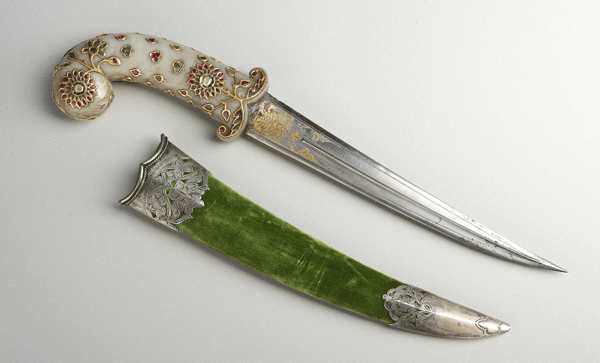FWP:
SETS == CATCH-22;
PARALLELISM
SWORD: {1,3}
How far overboard is it possible to go, in welcoming and even passionately seeking death? Here's a kind of limit case, pushed into a reversal of normal experience in the first line, and an actual paradox in the second line.
Traditionally a murderer must pay a mutually agreed-upon 'blood-price' to the victim's relatives (for more on this, see {21,9}), as a form of compensation that saves him from the risk of being murdered in retaliation. It would be generous enough even to excuse the murderer from paying the blood-price, as Nazm suggests. (Compare {64,6}, in which the lover volunteers to be solely responsible for the whole blood-price for any number of victims.) But it's even more perversely lover-like to order that a blood-price be instead actually paid to the murderer, so that the murderer makes a profit from the deed. Compare {19,4}, in which the lover tries to arrange some contrivance by which the beloved would murder him-- a financial reward might well be part of such a deal.
The paradoxicalness of the second line works strongly against
Nazm's reading, and in favor of Bekhud Mohani's. For needless to say, if someone's
tongue has just been cut out, he's not well placed to start 'saying' things--
whether congratulatory or otherwise-- to the dagger that has cut it out. But
at least the intention can be there-- the desire to express extreme gratitude
for the powerful gift of silence, which is a prelude to the related, but even
more overwhelming, gift of death.

Nazm:
Here, by 'to give the blood-price' is meant 'to forgive [ba;xsh denaa] the blood-price'. (238)
== Nazm page 238